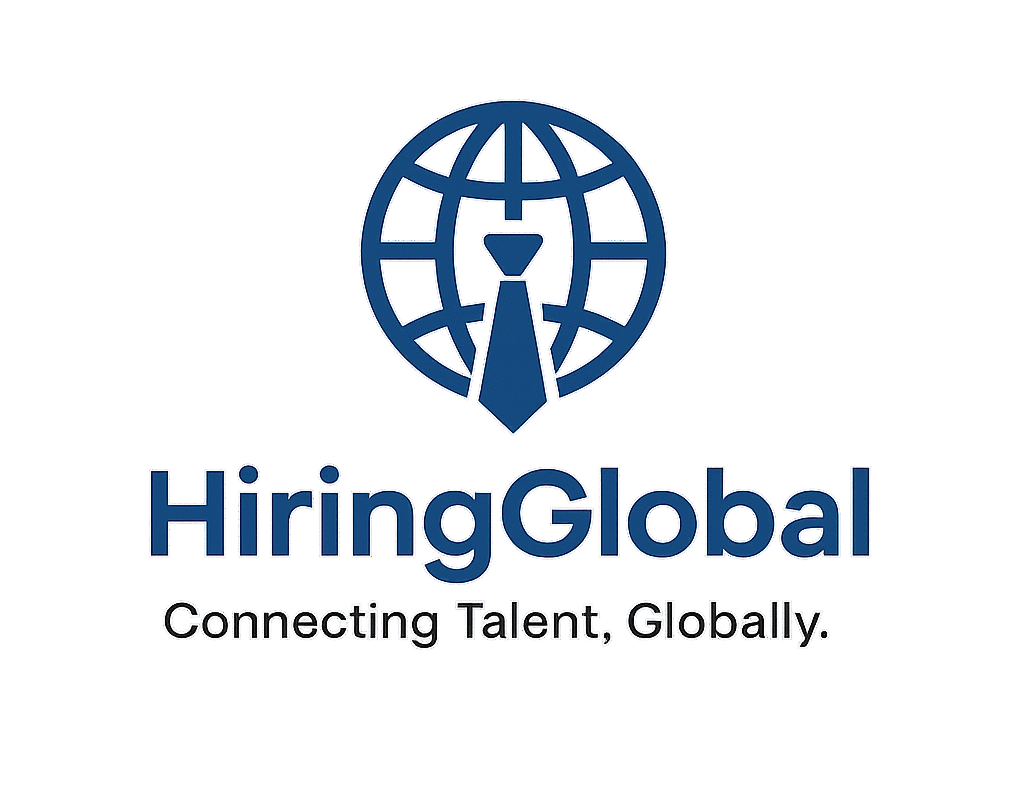Artificial Intelligence (AI) has rapidly transformed the way businesses operate, innovate, and interact with consumers. From recommendation systems on streaming platforms to chatbots in customer service, and from healthcare diagnostics to autonomous vehicles, AI is now at the heart of modern technology.
However, with great power comes great responsibility. As AI systems become more advanced and pervasive, concerns about bias, transparency, accountability, and privacy have grown significantly. Governments, organizations, and consumers are now demanding that AI be developed and deployed ethically and responsibly.
This rising demand has given birth to a new and highly specialized field: AI auditing and compliance. These roles focus on ensuring that AI systems are fair, unbiased, and compliant with global regulations.
For professionals looking to enter one of the most future-proof and rewarding career paths, this domain offers tremendous opportunities. In this article, we’ll explore why AI auditing is crucial, what kinds of jobs are available, the skills you need, and how to start a career in this exciting field.
Table of Contents

Why Ethical AI and Compliance Are Crucial Today
While AI has immense potential to improve lives, it can also cause harm if left unchecked. Issues such as biased algorithms, privacy violations, and lack of transparency have already surfaced in real-world applications.
Here’s why the world urgently needs ethical AI professionals:
1. Preventing Algorithmic Bias
AI systems are only as good as the data they are trained on.
If the data contains biases or discriminatory patterns, the AI will replicate and even amplify those biases.
Example:
- A hiring AI that favors certain genders or ethnic groups.
- A credit scoring system that unfairly penalizes minority applicants.
Ethical AI auditors play a key role in detecting and fixing these biases before they impact real people.
2. Ensuring Compliance with Global Regulations
Governments worldwide are introducing AI-specific laws and regulations to protect consumers and society.
Some notable frameworks include:
- EU AI Act – The world’s first comprehensive AI regulation.
- U.S. AI Bill of Rights – Guidelines for responsible AI practices.
- India’s DPDP Act (Digital Personal Data Protection Act) – Governing data privacy and protection.
AI compliance professionals help organizations navigate these complex legal landscapes, avoiding costly fines and reputational damage.
3. Building Public Trust
For AI to reach its full potential, people need to trust the systems they interact with.
Ethical AI practices ensure transparency and accountability, making users more comfortable with adopting AI-driven technologies.
Real-world impact:
An AI healthcare diagnostic tool must explain its decisions clearly so doctors and patients can trust the results.
4. Protecting Organizations from Financial and Legal Risks
Unethical or non-compliant AI systems can lead to:
- Multi-million-dollar lawsuits
- Government penalties
- Loss of customer trust
- Brand damage
By investing in AI auditing and compliance, companies can safeguard their future and operate more sustainably.
What is Ethical AI Auditing?
Ethical AI auditing is the process of evaluating AI systems to ensure they meet certain ethical, legal, and technical standards.
Think of it like a financial audit — but instead of reviewing monetary transactions, auditors review algorithms, data pipelines, and AI outcomes.
The main goals include:
- Detecting bias and discrimination in AI models
- Ensuring transparency and explainability
- Verifying compliance with privacy and data protection laws
- Assessing the security and reliability of AI systems
- Recommending improvements for fairness and accountability
Key Responsibilities of AI Auditors and Compliance Specialists
Professionals in this field take on a variety of important tasks:
- Risk Assessment – Identifying potential ethical and legal risks in AI projects.
- Bias Detection and Mitigation – Testing algorithms for hidden biases and suggesting fixes.
- Regulatory Compliance – Ensuring systems adhere to relevant AI and data privacy laws.
- Documentation and Reporting – Creating audit reports for internal and external stakeholders.
- Stakeholder Communication – Explaining complex technical concepts in simple terms.
- Training Teams – Educating developers, data scientists, and executives about responsible AI practices.

Types of Jobs in Ethical AI Auditing and Compliance
As this field grows, a variety of specialized roles have emerged. Here are some of the most in-demand job titles:
1. AI Auditor
AI auditors are the front-line professionals who evaluate and test AI systems for ethical and regulatory compliance.
Key Responsibilities:
- Conduct technical audits of machine learning models
- Identify biases in datasets and algorithms
- Provide actionable recommendations for improvement
Average Salary:
- India: ₹10 – ₹22 LPA
- U.S.: $90,000 – $140,000 annually
2. AI Ethics Specialist
These professionals focus on the broader ethical implications of AI, working closely with developers, policymakers, and executives.
Key Responsibilities:
- Develop company-wide ethical AI policies
- Review new AI projects for alignment with ethical standards
- Collaborate with legal and technical teams to ensure accountability
Average Salary:
- India: ₹12 – ₹25 LPA
- U.S.: $100,000 – $150,000 annually
3. AI Compliance Manager
AI compliance managers ensure that all AI initiatives meet legal and regulatory requirements.
Key Responsibilities:
- Monitor global AI regulations and update company policies
- Work with auditors to ensure consistent compliance
- Prepare organizations for external inspections or certifications
Average Salary:
- India: ₹15 – ₹30 LPA
- U.S.: $110,000 – $160,000 annually
4. AI Policy Advisor
These professionals bridge the gap between technology and government, advising policymakers on responsible AI legislation.
Key Responsibilities:
- Research emerging AI trends and risks
- Draft policy recommendations
- Advocate for ethical AI at industry forums and events
Average Salary:
- India: ₹10 – ₹20 LPA
- U.S.: $80,000 – $130,000 annually
5. Data Privacy Officer (AI Focus)
Data privacy officers with an AI specialization focus on how personal data is used in AI systems.
Key Responsibilities:
- Oversee data collection and usage practices
- Ensure compliance with privacy laws like GDPR and DPDP Act
- Conduct privacy impact assessments for AI projects
Average Salary:
- India: ₹12 – ₹25 LPA
- U.S.: $90,000 – $140,000 annually
Skills Needed for Careers in AI Auditing and Compliance
Breaking into this field requires a unique blend of technical expertise, legal knowledge, and ethical awareness. Here are the core skills you’ll need:
1. Technical Skills
- Machine learning fundamentals
- Understanding of AI algorithms and neural networks
- Data analytics and statistical modeling
- Familiarity with tools like Python, R, and TensorFlow
- Knowledge of bias detection frameworks (e.g., IBM AI Fairness 360)
2. Regulatory Knowledge
You’ll need to understand global privacy and AI regulations, including:
- GDPR (General Data Protection Regulation)
- EU AI Act
- U.S. AI Bill of Rights
- India’s DPDP Act
- ISO/IEC standards for AI
3. Soft Skills
- Strong problem-solving and analytical thinking
- Ability to explain complex technical issues to non-technical audiences
- Ethical decision-making and critical thinking
- Excellent communication and reporting skills
Steps to Build a Career in Ethical AI Auditing
Here’s a clear roadmap to help you get started in this growing field:
Step 1: Educational Background
A bachelor’s degree in one of the following areas is usually required:
- Computer Science
- Data Science
- Law (for policy and compliance roles)
- Business or Public Policy
Step 2: Gain Technical Knowledge
Even if you’re not from a technical background, learning the basics of AI and machine learning is essential.
Resources:
- Coursera’s AI for Everyone by Andrew Ng
- Google AI training programs
- Fast.ai courses
Step 3: Earn Certifications
Certifications can give you a competitive edge:
- Certified AI Auditor (CAIA)
- Certified Information Privacy Professional (CIPP)
- Certified Information Security Manager (CISM)
- ISO 27001 Lead Auditor
Step 4: Get Practical Experience
- Work on open-source AI audit projects
- Join hackathons focused on ethical AI
- Intern with companies implementing AI systems
Step 5: Stay Updated
The field of AI ethics evolves rapidly.
Follow industry news, attend webinars, and join professional organizations like:
- Partnership on AI
- IEEE Standards Association
- AI Ethics Lab
Industries Hiring AI Auditing and Compliance Professionals
The demand for ethical AI roles spans multiple industries. Some sectors leading the way include:
- Healthcare:
AI is used in diagnostics, treatment planning, and patient data management. Ethical oversight is critical to avoid errors and privacy breaches. - Finance and Banking:
AI-driven credit scoring, fraud detection, and trading algorithms require strict compliance with financial laws. - E-commerce and Retail:
Recommendation systems and customer data analytics must be transparent and fair. - Government and Public Sector:
AI auditing ensures public services remain unbiased and accountable. - Tech Companies:
Big tech firms like Google, Microsoft, and IBM are investing heavily in responsible AI initiatives.
Salary and Career Growth Outlook
The career outlook for AI auditing and compliance professionals is extremely promising.
- Global Demand: According to reports, the AI governance market is expected to grow at a 32% CAGR by 2030.
- High Salaries: Entry-level positions start around ₹8 – ₹10 LPA in India and $80,000 annually in the U.S., with senior roles earning significantly more.
- Career Growth: Professionals can advance to leadership positions such as Chief AI Ethics Officer or Head of AI Governance.
Future Trends in Ethical AI and Compliance
The landscape of AI auditing will continue to evolve as technology advances. Here are some trends shaping the future:
1. Automated AI Auditing Tools
AI-powered auditing software will help professionals analyze complex systems more efficiently.
2. Global Standardization
We’ll see the emergence of global ethical AI standards, similar to how ISO standards work today.
3. Explainable AI (XAI)
Demand for transparent AI systems that clearly explain their decision-making processes will grow.
4. Integration with Cybersecurity
AI ethics and cybersecurity will converge, creating hybrid roles focused on both safety and compliance.
Why This Field is a Future-Proof Career Choice
AI auditing and compliance offer unique benefits:
- High Job Security: As AI adoption grows, so does the need for oversight.
- Positive Impact: You’ll directly contribute to building fair and trustworthy technology.
- Global Opportunities: These roles are relevant across industries and countries.
- Continuous Learning: The field is dynamic and intellectually stimulating.

Final Thoughts
As AI becomes deeply woven into the fabric of our lives, ensuring it is ethical, fair, and transparent is no longer optional — it’s essential.
The rise of ethical AI auditing and compliance marks the beginning of a new era where technology is held accountable.
For professionals seeking a meaningful, future-proof career, this field offers the perfect blend of challenge, purpose, and reward. By developing the right skills and staying ahead of industry trends, you can become a vital part of shaping the future of responsible AI.
Follow us on whatsapp channel
